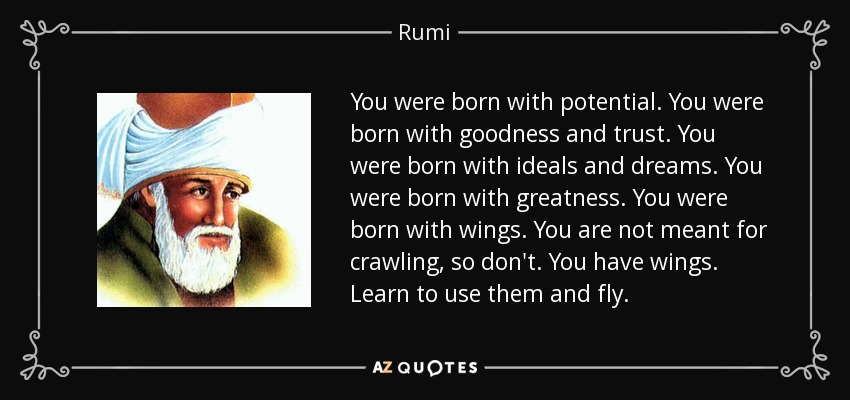Unlearning Prospero’s language: Decolonizing leadership in FE

“You were born with potential. You were born with goodness and trust.
“You were born with ideals and dreams. You were born with greatness. You were born with wings.
“You are not meant for crawling, so don’t. You have wings. Learn to use them and fly.” – (Rumi)

The tempest is passed. The colonizers have left the island. Caliban is at last free to determine his own destiny.
How will he rule this realm he finds himself in charge of?
What principles will he draw on to govern his new world?
Caliban had only Prospero as an example. Will he emulate him?
He once bemoaned his master’s impact on him: ‘You taught me language, and my profit on ’t / I know how to curse. The red plague rid you / For learning me your language!’ (1.2:368).
As we imagine a future Further Education liberated from its shackles, and liberating to those who inhabit it, we must look afresh at governance and leadership that eschew past practices and create new principles to govern our utopia, otherwise we will be condemned to repeat the past.
But how do we construct what we do not yet know?
Where can we find the building blocks for our new FE?
This [article] sets out to explain how we must unlearn the language that has kept FE in servitude and how, unless it is fundamentally altered, it will condemn us to recreate Prospero’s world.
Drawing on ongoing work with existing and would-be FE leaders undertaking postgraduate study, it describes the decolonizing process they experience as they critically examine their beliefs and practices and seek to formulate a different model of pedagogical leadership.
As they look to principles of liberation pedagogy and community philosophy such as Ubuntu, we seek to articulate a new language with ancient roots in our collective memory.
Learning from the past
Unlearning is the most difficult part of learning. Caliban, who only knows what his master taught him, will undoubtedly find it difficult to unravel his learning and start to weave new understandings. To do so, he must look within himself and his island to a time before Prospero’s arrival.
I always start by taking my students back to a time when FE was different to what they have become accustomed to. It’s remarkable how little those currently leading the sector know about its history.
FE’s early 19th century roots lie with the establishment of the Mechanics’ Institutes at a time when education was a conduit for working class emancipation. The aim of this education was to provide workers with powerful knowledge such as science and the liberal arts that until then were the preserve of the privileged few. Many of these mechanics’ institutes would evolve into colleges, others into universities.
Although some were controlled by well-meaning industrialists, the Prosperos of their time, several colleges came about through the efforts of radical labour and were a place of intellectual evolution and political transformation, where a collective consciousness was born and flourished. Young FE leaders I teach are invariably astonished to learn of the agency of both teachers and learners in FE’s history.
If we superimpose a cultural theory model to examine the FE terrain past and present, we can see that FE has always involved a tussle between various interest groups.
The hierarchists, who established institutes with the purpose of controlling the workers, still hold sway, their philosophies having morphed into the current managerialism that plagues the sector. The philanthropic industrialists who endowed the original mechanics’ institutes have become the individualist market actors who favour what they may refer to as talent and skills. Whereas the radical workers, whose successes were ultimately limited, are the egalitarians who strove for social justice and equity and who still reside in the very DNA of teaching and learning in FE.
The evolving terrain of the sector from the 19th century to the present reflects the ongoing scrimmage between these groups, with the wider population as the fatalists, either ignorant of FE or unconcerned with its fate, while the teachers and tutors of the present subvert the system from within; Dancing Princesses biding their time in Trojan Horses, a form of underground leadership waiting to emerge.
Cultural Theory posits that dynamic instability can allow for a new balanced order to emerge. The neoliberal regime that has fractured FE may be the tempest that offers us the opportunity to finally reshape the terrain. But first we need our FE Calibans to break out of their internalized oppression. This is the starting point for our future FE, reclaiming its old emancipatory mission, and giving voice once again to its staff and students. It is from the narratives of those who teach and learn within FE that the new language and practice of leadership and governance will be forged.
We need to delve back into the heart and soul of teaching and learning in FE to source our new vocabulary. The building blocks for our new FE are to be found in pedagogy and organization.
Pedagogy is essentially about knowledge – its construction, its legitimacy, who defines it and who controls access to it. The current orthodoxy speaks of taught knowledge as a commodity, measured by assessment, sold in the form of qualifications, anchored firmly to employment and employability. This is the language we need to challenge and replace. The debate has already started in the first two books of this trilogy; we need to take it further.
Our new FE will be a bastion for powerful knowledge, where great canons are shared with students, with the firm belief that they are legitimate heirs to that knowledge. And our FE will also be a place of unfettered pedagogical dialogue, where knowledge is co-created by students and teachers, rooted in values of intellectual flourishing, equity, and future possibilities.
This will require us to rethink what we mean by quality in teaching and learning, challenging the hegemony of Ofsted orthodoxy that seems to change periodically, to push an external perspective on what makes for good teaching and learning. We need to shift that to building the autonomy of the individual teacher as the pedagogical authority.
Beyond the classroom, we need to look afresh at how to build organizational structures. I don’t wish to speak of management structures and competitive advantage; this is the old language of hierarchy and division.
I propose instead that we move to thinking in terms of networks of connectivity. I am using this term to mean the networks within an FE institution and between the institutions that make up the wider lifelong-learning sector.
How do we formulate teams to work on various aspects of creating and sustaining FE?
The core of that would be an ethical, equitable and communal approach to organization, where teachers are at the heart of the networks and students are invited in as co-scholars while they are there.
Rania Hafez is Senior Lecturer in Education at the University of Greenwich and co-chair of the London Learning & Skills Research Network.
An extract from Caliban’s Dance: FE after The Tempest, edited by Maire Daley, Kevin Orr and Joel Petrie. Trentham Books, UCL IOE Press, 2020.
Save 20% on the paperback with code FVCAL at UCL IOE Press











Responses